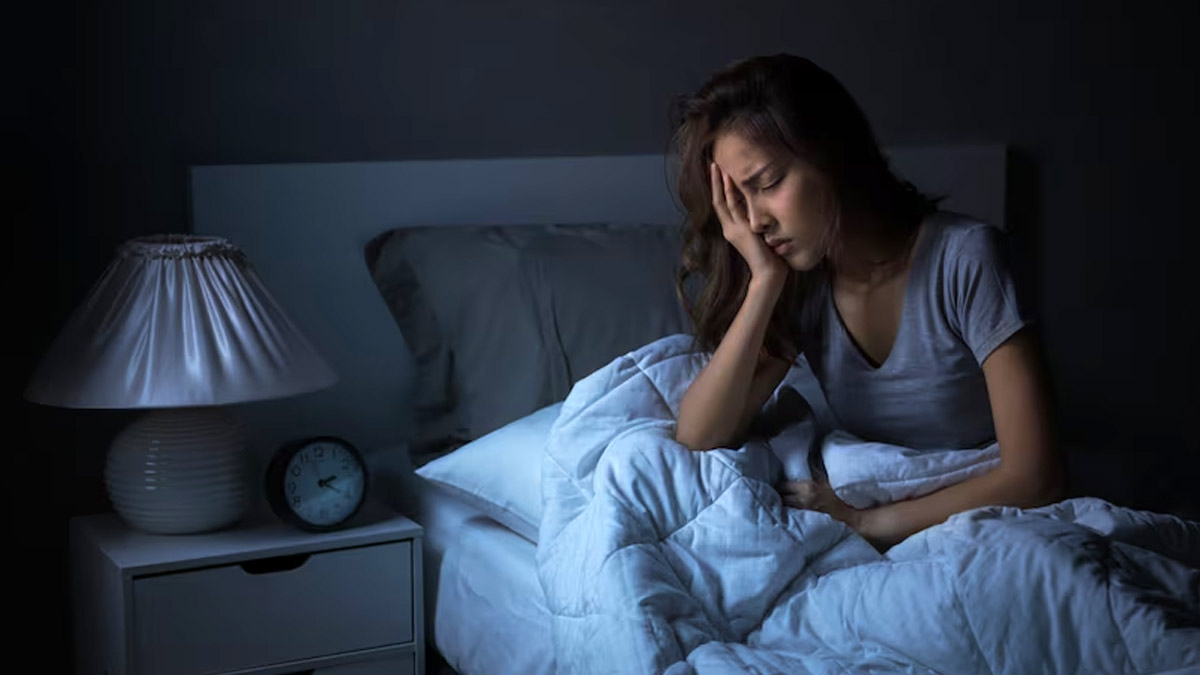
Feeling anxious about sleeping alone is a common experience that many people face. The stillness of the night, combined with the solitude, can often amplify our fears and anxieties. Whether it's the fear of the unknown, childhood traumas, or just a general sense of unease, these feelings can disrupt our sleep and impact our overall well-being. Understanding the root causes of this anxiety and exploring effective strategies to overcome it can pave the way to restful nights and a more peaceful mind.
To understand this anxiety of sleeping alone, OnlyMyHealth interacted with Dr Savneet Kaur Bhasin, Mental Health Therapist, Mumbai.
Reasons for Anxiety About Sleeping Alone
According to a study, there is a strong correlation between sleep anxiety and insomnia. It highlighted that individuals who experience anxiety about sleeping alone often have higher levels of general anxiety, which can lead to chronic sleep difficulties
People often feel anxious about sleeping alone due to several reasons explained by Bhasin:
Fear of the unknown: Darkness or unfamiliar sounds can make people uneasy.

Past experiences: “Traumatic events, like a break-in or childhood fears, can trigger anxiety,” Bhasin said. Research published by ScienceDirect indicated that childhood traumas, such as experiencing a loss or witnessing domestic violence, can manifest as sleep anxiety in adulthood. This study emphasised the long-term impact of early-life stress on sleep patterns.
Loneliness: Nighttime can amplify feelings of loneliness and isolation. A study from the American Journal of Psychiatry explored the connection between separation anxiety disorder (SAD) and adult sleep anxiety. It concluded that adults who experienced SAD in childhood were more likely to have difficulties sleeping alone, suggesting a developmental link.
Safety concerns: Worrying about personal safety or health issues can cause anxiety.
“Certain psychological conditions can also contribute, such as Generalised Anxiety Disorder (GAD), Post-Traumatic Stress Disorder (PTSD), and separation anxiety,” Bhasin said.
Also read: How Does Sandalwood Help In Calming Anxiety And Stress?
Symptoms of Anxiety Related to Sleeping Alone

- Restlessness: Tossing and turning, unable to get comfortable.
- Racing thoughts: Worrying about various things, making it hard to relax.
- Physical symptoms: Heart palpitations, sweating, trembling.
- Nightmares: Disturbing dreams that wake you up and make it hard to go back to sleep.
- Insomnia: Difficulty falling or staying asleep.
Impact on Sleep Quality and Well-being
According to Bhasin, anxiety about sleeping alone can significantly affect sleep and overall well-being.
- Poor sleep quality: Frequent awakenings, light sleep, or trouble falling asleep.
- Daytime fatigue: Feeling tired and sluggish during the day.
- Impaired functioning: Difficulty concentrating, memory problems, irritability.
- Emotional distress: Increased stress, mood swings, and lower overall happiness.
Also read: Facing Chronic Stress? Eat These Health Food
Strategies to Manage Fear of Sleeping Alone
Here are some effective techniques:
- Create a routine: Establish a calming bedtime routine, like reading, journaling or meditating.
- Environment: Ensure your sleeping environment is comfortable and safe. Use nightlights or white noise if necessary.
- Mindfulness and relaxation: Practice deep breathing, progressive muscle relaxation, or mindfulness meditation.
- Gradual exposure: Gradually spending more time alone in your bedroom can help reduce anxiety over time.
- Cognitive behavioral techniques: Challenge and reframe negative thoughts about being alone at night.
- Support System: Talk about your fears with friends or family members. Sometimes, sharing can ease the burden.
How we keep this article up to date:
We work with experts and keep a close eye on the latest in health and wellness. Whenever there is a new research or helpful information, we update our articles with accurate and useful advice.
Current Version